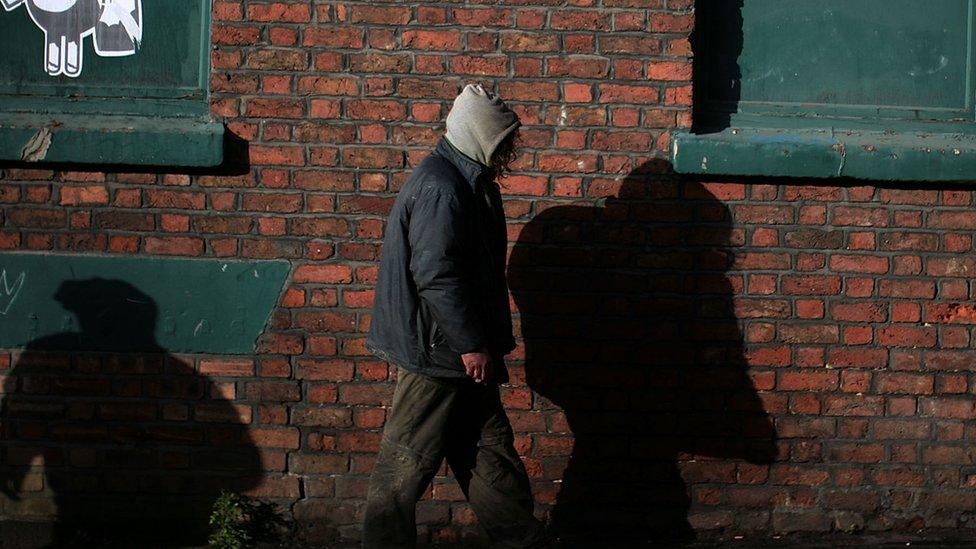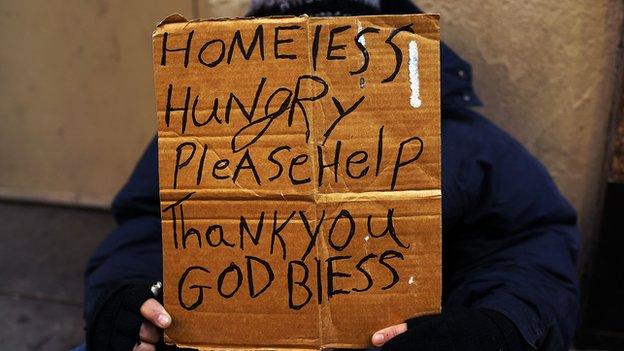Housing rough sleepers in Liverpool region 'could save money', reports says
- Published

Homeless people often struggle with "lack of security in hostels", the report says
Providing long-term rough-sleepers with a place of their own could save the Liverpool City Region (LCR) up to £4m a year, a study has found.
The feasibility report,, external commissioned by the charity Crisis, looked at piloting the Housing First support system aimed at reducing homelessness.
Finding people a home "improves well-being" and is more cost-effective than hostel placements, it said.
LCR Mayor Steve Rotheram said it could "change how we tackle homelessness".
'Extra support needed'
The study, funded by the UK government and the charity Housing First, said the "current system is failing some of the most vulnerable homeless people, who often struggle with the rules and conditions, stress, and lack of security in hostels".
It said they needed "higher levels of support as a result of poor mental health, substance misuse, physical or learning disabilities or a history of offending".
Adopting the Housing First scheme could save LCR between £1.18m and £4.02m annually by 2023/24, the report claims.
It estimated LCR - which includes Liverpool, Knowsley, Sefton, St Helens, Wirral and the Cheshire borough of Halton - would have to spend about £12,600 per user annually if implemented.
'Stable home'
The study by the charity Crisis and others found that in April this year more than 500 people in the Liverpool city region had been using homeless services for a year.
Of these, 15-20 were considered long-term rough sleepers in Liverpool itself, the council said.
Jon Sparkes, chief executive of Crisis, said: "For the most vulnerable rough sleepers, the best approach is to support people into a stable home of their own as soon as possible and shape personalised support around them."
Along with LCR mayor Steve Rotheram, he called on the UK government to consider the "radical new approach", which has been used in Scotland, Denmark, Finland, France, Canada and the US.
Mr Rotheram said: "I recognise the enormously valuable work being done by agencies... but as this report makes clear, there are limitations to the current system, which mean that all too often the most vulnerable rough sleepers are falling through the cracks."
Communities Secretary Sajid Javid said the study provided "valuable evidence for consideration by our new Homelessness Reduction Task Force".
- Published27 April 2016

- Published15 April 2014
